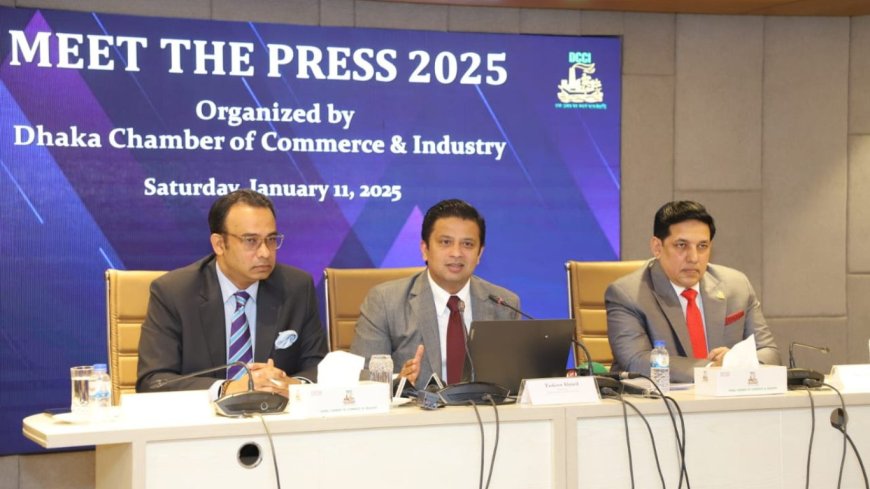VAT, tax, and gas price increases could have a devastating impact on the economy, warns DCCI
DCCI President Taskeen Ahmed calls on the government to prioritize avoiding non-essential projects and to enhance oversight of ADP implementation.

Amid ongoing global geopolitical turmoil and challenges facing both international and domestic economies, increasing VAT on over a hundred products, imposing taxes on certain industries, and raising gas prices are catastrophic moves for businesses, investments, and the overall economy, warned Dhaka Chamber of Commerce & Industry (DCCI) President Taskeen Ahmed.
Speaking at a press conference on Saturday, Taskeen addressed key issues in the current economic landscape and outlined the chamber's priorities for 2025.
He highlighted that the private sector in Bangladesh is grappling with numerous challenges, including global geopolitical instability, its effects on the international and local economies, foreign exchange reserve depletion, escalating import costs, high energy prices, soaring inflation, elevated interest rates, high tariff rates, increasing VAT, and a deteriorating law-and-order situation.
Taskeen stated that this year, DCCI will emphasize reducing interest rates, controlling inflation, and stabilizing the foreign exchange rate. He stressed the importance of accelerating the flow of affordable financing to the cottage, micro, small, and medium enterprises (CMSME) sector, which is the largest employment generator in the country.
Commenting on government reform initiatives, he expressed hope that reforms impacting the private sector would be completed promptly as per targets. Taskeen also remarked that completing 100 economic zones by 2030 with all necessary infrastructure is an ambitious goal. Instead, he suggested focusing on ensuring infrastructure and facilities in five zones, which would inspire confidence among domestic and foreign investors, fostering investment growth.
Regarding policy consistency, Taskeen highlighted that long-term supportive tax structures encourage entrepreneurship. Sudden increases in taxes or duties can disrupt business confidence and hinder both local and foreign investment, which could negatively impact the economy.
On Bangladesh's preparation for LDC graduation, Taskeen observed that while progress was on track, the COVID-19 pandemic, the Russia-Ukraine war, unrest in the Middle East, domestic political instability, and financial market challenges have caused setbacks. He suggested a detailed discussion among stakeholders to assess the country’s readiness. If needed, deferring the graduation timeline could be considered to ensure a stable transition based on a collective national decision. However, he emphasized that post-graduation, the government must ensure robust support for the private sector to navigate the challenges.
Taskeen also pointed out that Bangladesh's tax-GDP ratio remains low, and the number of taxpayers is below expectations. To address the budget deficit and ease economic pressures, he urged the government to adopt austerity measures and avoid unnecessary projects. Strengthened monitoring of ADP implementation is crucial to ensure timely project completion, he added.
DCCI Senior Vice President Razeev H. Chowdhury, Vice President Md. Salem Sulaiman, and other board members were also present at the event.
What's Your Reaction?





















































































